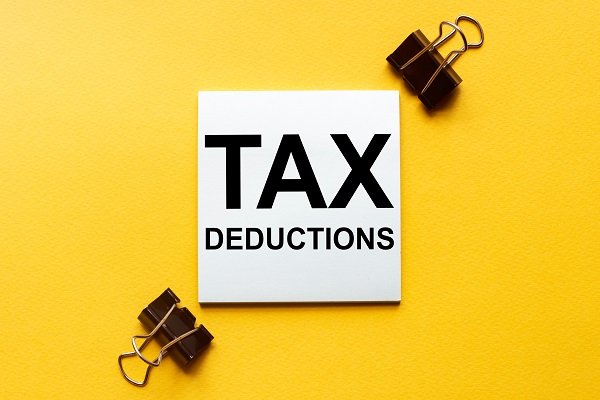The Income Tax Act, 1961, has undergone numerous amendments over the years, particularly in relation to the deduction of bonus or commission paid to employees under Section 36(1)(ii). This section is crucial for businesses as it outlines the conditions under which such payments can be claimed as deductions when computing taxable income. This blog provides a detailed analysis of the legislative amendments, case laws, and key considerations relevant to Section 36(1)(ii).
Section 36(1)(ii) Overview: Deductibility of Bonus and Commission
Section 36(1)(ii) of the Income Tax Act allows businesses to claim deductions for any sum paid to employees as bonus or commission for services rendered, provided these payments are not profits or dividends otherwise payable to them. This provision ensures that genuine payments made as part of the employee’s remuneration package can be deducted when calculating the business’s taxable income.
Legislative Amendments to Section 36(1)(ii)
The Payment of Bonus (Amendment) Act, 1976
The Payment of Bonus (Amendment) Act, 1976, introduced significant changes to Section 36(1)(ii). These amendments, effective retrospectively from September 25, 1975, included:
Amendment to the Existing Proviso:
The original proviso was amended to limit the deduction of bonus payments to employees governed by the Payment of Bonus Act, 1965, to the statutory amount payable under the Act.
Insertion of a New Proviso:
- A new proviso was added, applicable to employees not covered by the Payment of Bonus Act, 1965. This proviso laid down that the amount of bonus or commission should be reasonable with reference to the employee’s salary, the conditions of their service, the profits of the business, and the general practice in similar industries.
The Central Board of Direct Taxes (CBDT) clarified these amendments in Circular No. 206, dated August 9, 1976. The clarification emphasized that bonus payments exceeding the statutory limits set by the Payment of Bonus Act were not automatically disallowed but had to meet the reasonableness test.

The Direct Tax Laws (Amendment) Act, 1987
The Direct Tax Laws (Amendment) Act, 1987, brought further changes, effective from April 1, 1989. The first and second provisos to Section 36(1)(ii) were omitted, simplifying the process of claiming deductions for bonus and commission payments. The omission meant:
Removal of Caps:
The statutory limits on bonus payments were removed, allowing businesses greater flexibility in paying bonuses or commissions to employees.
Introduction of Section 43B:
- To prevent abuse of these liberalized provisions, Section 43B was amended to allow deductions for bonus and commission payments only when these amounts were actually paid, not merely accrued.
These changes were intended to reduce litigation and bring rationality to the provisions regarding the deductibility of bonus and commission payments.
Key Judicial Interpretations
Deductibility and Reasonableness
Over the years, several judicial decisions have interpreted Section 36(1)(ii) and its provisos. For example, in the case of Laxmandas Sejram v. CIT (1964), the Gujarat High Court held that the reasonableness of bonus or commission payments should be judged from the perspective of commercial expediency and the prevailing practices in similar industries.
Similarly, in Shahzada Nand & Sons v. CIT (1977), the Supreme Court emphasized that the question of whether a bonus or commission is reasonable should not be judged by any subjective standard but should be viewed through the lens of business necessity and industry norms.
Ex-Gratia Payments
Ex-gratia payments, although voluntary, can also be deductible under Section 36(1)(ii), provided they meet the criteria of being reasonable and necessary for the business. In CIT v. Egmore Benefit Society Ltd. (1998), the Madras High Court upheld the deductibility of bonus payments made in excess of statutory limits on the grounds of commercial expediency.
Customary Bonuses
Customary or festival bonuses are another important consideration. Such bonuses, which are paid regularly and uniformly, have been recognized as deductible expenses, separate from profit bonuses governed by the Payment of Bonus Act. The Supreme Court in Mumbai Kamgar Sabha v. Abdulbhai Faizullabhai (1976) clarified that customary bonuses do not fall under the statutory definition of bonus and are therefore deductible under Section 37(1).
Implications for Businesses
The amendments to Section 36(1)(ii) have significant implications for businesses:
Flexibility in Payment:
With the removal of the statutory caps on bonus payments, businesses can structure their employee remuneration packages more flexibly, provided the payments are reasonable and justifiable.
Compliance with Section 43B:
To ensure that bonus and commission payments are deductible, businesses must comply with Section 43B, which requires actual payment before the due date for filing the return of income.
Documentation and Justification:
Businesses should maintain proper documentation to justify the reasonableness of bonus and commission payments, especially when these exceed statutory limits or are made to related parties.
Frequently Asked Questions (FAQs)
1. What is the primary purpose of Section 36(1)(ii) of the Income Tax Act?
Section 36(1)(ii) allows businesses to claim deductions for any sum paid to employees as bonus or commission for services rendered. The primary purpose is to ensure that legitimate payments made as part of the employee’s remuneration package can be deducted when calculating the business’s taxable income.
2. How did the Payment of Bonus (Amendment) Act, 1976, affect the deduction of bonus payments?
The Payment of Bonus (Amendment) Act, 1976, introduced a limit on the deduction of bonus payments to employees governed by the Payment of Bonus Act, 1965. It also added a proviso for employees not covered by the Act, requiring that the bonus or commission be reasonable based on various factors, including the employee’s salary and the general practice in similar industries.
3. What are the implications of the Direct Tax Laws (Amendment) Act, 1987, on bonus payments?
The Direct Tax Laws (Amendment) Act, 1987, removed the statutory limits on bonus payments, allowing greater flexibility for businesses. However, to prevent abuse, it introduced the requirement that bonus and commission payments must be actually paid before the due date for filing the return of income to be deductible.
4. Can ex-gratia payments be claimed as a deduction under Section 36(1)(ii)?
Yes, ex-gratia payments can be claimed as a deduction under Section 36(1)(ii), provided they are reasonable and necessary for the business. Courts have upheld the deductibility of such payments when they meet these criteria.
5. What should businesses do to ensure compliance with Section 36(1)(ii)?
Businesses should maintain proper documentation to justify the reasonableness of bonus and commission payments, especially when these exceed statutory limits or are made to related parties. Additionally, they must comply with Section 43B, which requires actual payment of these amounts before the due date for filing the return of income.
Conclusion
Section 36(1)(ii) of the Income Tax Act plays a crucial role in determining the deductibility of bonus and commission payments made to employees. The legislative amendments over the years, particularly those introduced by the Payment of Bonus (Amendment) Act, 1976, and the Direct Tax Laws (Amendment) Act, 1987, have significantly impacted how businesses can claim these deductions. Understanding these changes and the relevant judicial interpretations is essential for businesses to optimize their tax liabilities while ensuring compliance with the law.
For more insights into the latest tax amendments and their implications, stay tuned to our blog at SmartTaxSaver, your go-to resource for all things related to income tax and financial planning.



